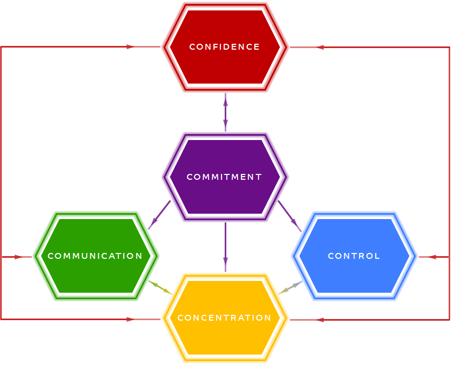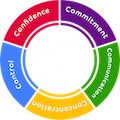
No matter what sport it is that you’re involved in, as a young athlete it’s crucial that you find training and competing enjoyable, that you feel able to perform to the best of your abilities when it matters, and that, over time, you develop and improve. Of course, focusing on your technical, tactical, and physical abilities is important in ensuring that all of this is possible, however, athletes who excel in their sport are typically those who also place emphasis on developing high-quality psychological skills.
This includes being able to regulate emotions such as anger and frustration whilst focusing attention on what’s important at the time, interacting with others in a way that is positive and helpful, and staying motivated and self-assured when faced with difficulties. These qualities and skills can be grouped under the 5Cs of: Commitment, Communication, Concentration, Control, and Confidence. Working on these mental aspects of performance can help you to manage the stresses and challenges you face as a result of participating in your sport, whilst also helping you to achieve your sporting goals.
Let’s take a brief look at each ‘C’ and how you might be able to demonstrate and develop each in your training sessions and competitions.
If you would like to become a 5C athlete, or if you would like more information, check out our services page or get in touch.
For tips on how to improve your 5Cs, you can also view our “Essential Mental Skills for Young Footballers” resource, linked below.

